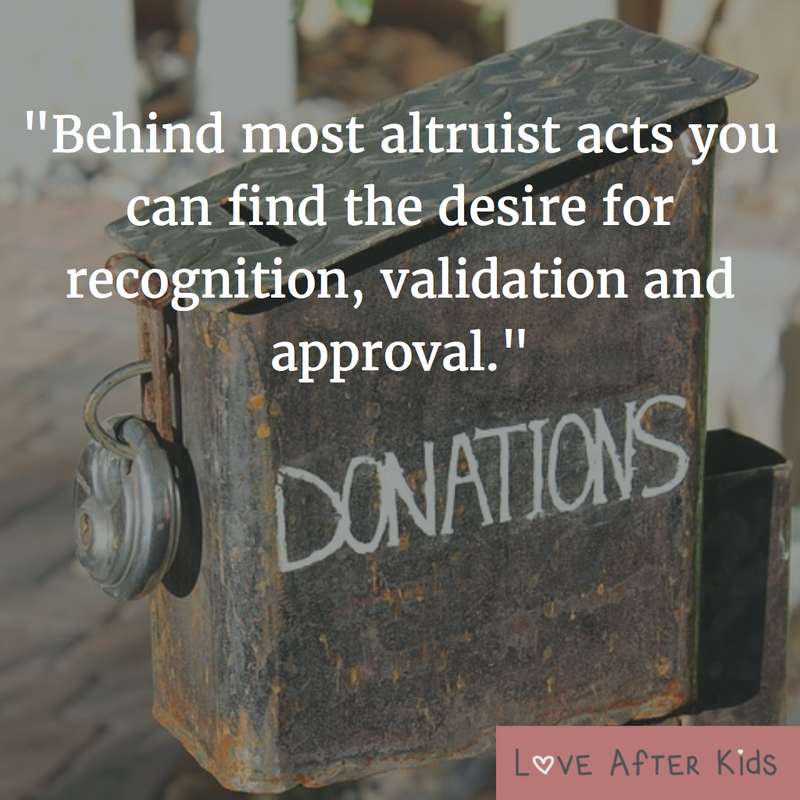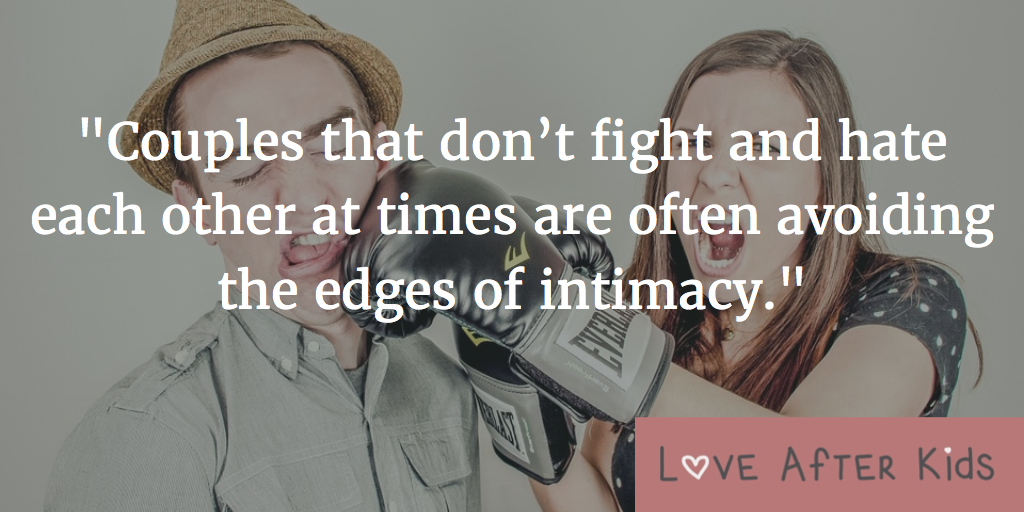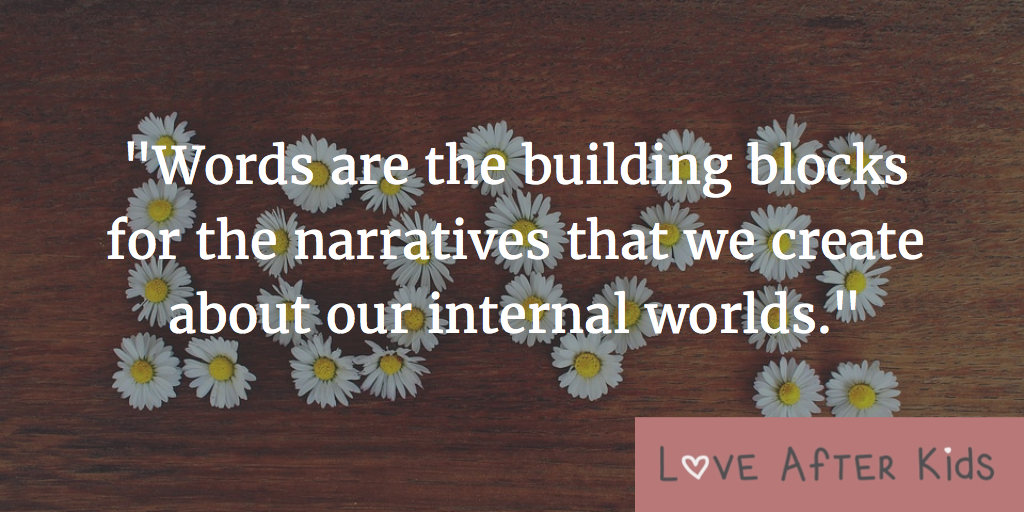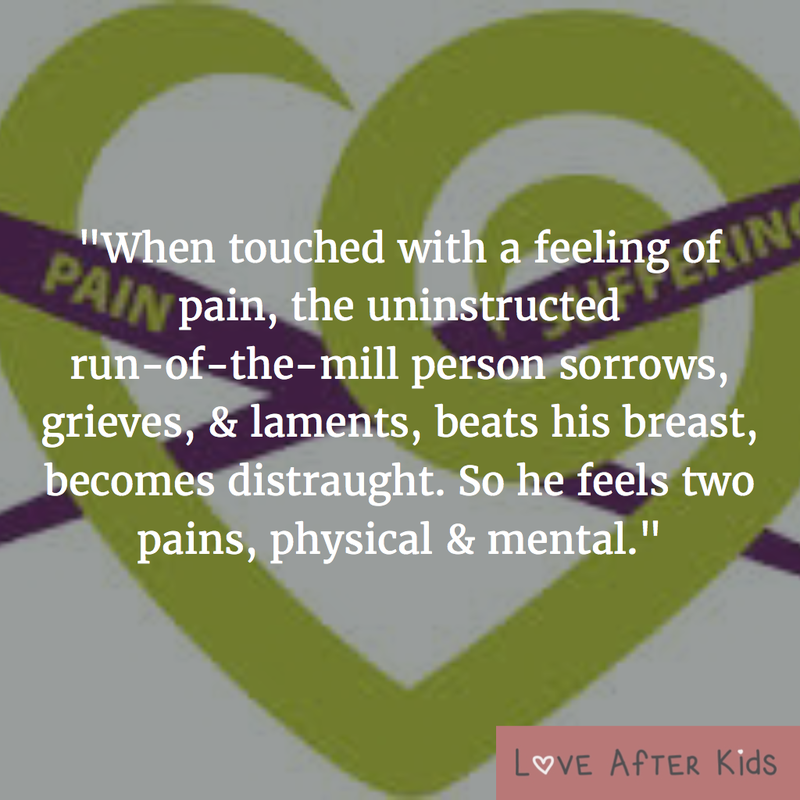Behind most altruistic acts you can find the desire for recognition, validation and approval. Does that make it less altruistic? I don’t think so. It makes it human.
How about those that give with no self-regard, at their own expense, without awareness of their own needs? Maybe they end up feeling resentful that they are always giving and never receiving. Maybe they always give so they don’t have to face the disappointment that comes with wanting and not getting.
You can still have selfishness and be altruistic. We all need a certain degree of selfishness or self-interest to be able to take care of ourselves, and in turn, give to others.
How about love and hate? When I hear people take pride in not having conflict with their partners that sets off alarm bells. Couples that don’t fight and hate each other at times are often avoiding the edges of intimacy.
It’s understandable. Conflict can be scary and threatening. It often leads to saying and doing things we regret afterwards. It can make us feel vulnerable and uncertain. But what happens when we don’t go there? One thing that can happen is it can create the illusion of safety and security, which is an invitation for complacency.
Another thing that can happen when we don’t allow for conflict and negative emotions in relationships is a blunting of experiences. Passion exists when there is space for the reality of uncertainty and unpredictability. But uncertainty and unpredictability come with discomfort.
We use words to understand how we feel. Words are the building blocks for the narratives that we create about our internal worlds. They are imperfect because words will never fully encapsulate something like butterflies in the stomach.
Not only are words imperfect, but when they are repeated over and over inside our own heads, or in conversation with others, they can cement subjective experiences into longstanding beliefs. For example, someone that feels sad can reinforce a narrative about their feelings that contributes to an ongoing state of depression.
Emotions are inherently fleeting. Emotions have been proven to coincide with specific nervous system activation that is short-lived. Our reactions to the feelings are what make them persist and give them added life.
If we feel sad and react to the sadness by wishing it away, or judging it, we are feeding the initial feeling and making it into more than that. We do this with the narratives that we create in response to the feelings and the circumstances that led to the feelings.
The Buddhist parable of the two arrows encapsulates the aforementioned tension between the fleeting nature of emotions and the cementing capacity of words. This parable means so much to me that I have an arrow tattooed on each forearm.
According to the Sallatha Sutta:
"When touched with a feeling of pain, the uninstructed run-of-the-mill person sorrows, grieves, & laments, beats his breast, becomes distraught. So he feels two pains, physical & mental. Just as if they were to shoot a man with an arrow and, right afterward, were to shoot him with another one, so that he would feel the pains of two arrows; in the same way, when touched with a feeling of pain, the uninstructed run-of-the-mill person sorrows, grieves, & laments, beats his breast, becomes distraught. So he feels two pains, physical & mental..."
"Now, the well-instructed disciple of the noble ones, when touched with a feeling of pain, does not sorrow, grieve, or lament, does not beat his breast or become distraught. So he feels one pain: physical, but not mental. Just as if they were to shoot a man with an arrow and, right afterward, did not shoot him with another one, so that he would feel the pain of only one arrow. In the same way, when touched with a feeling of pain, the well-instructed disciple of the noble ones does not sorrow, grieve, or lament, does not beat his breast or become distraught. He feels one pain: physical, but not mental..."
"Sallatha Sutta: The Arrow" (SN 36.6), translated from the Pali by Thanissaro Bhikkhu. Access to Insight, 30 June 2010, http://www.accesstoinsight.org/tipitaka/sn/sn36/sn36.006.than.html.
FYI, I was inspired to write this post after listening to a conversation between two greats in the ethical marketing arena, my business coach, George Kao (www.georgekao.com) and Tad Hargrave (www.marketingforhippies.com).





 RSS Feed
RSS Feed